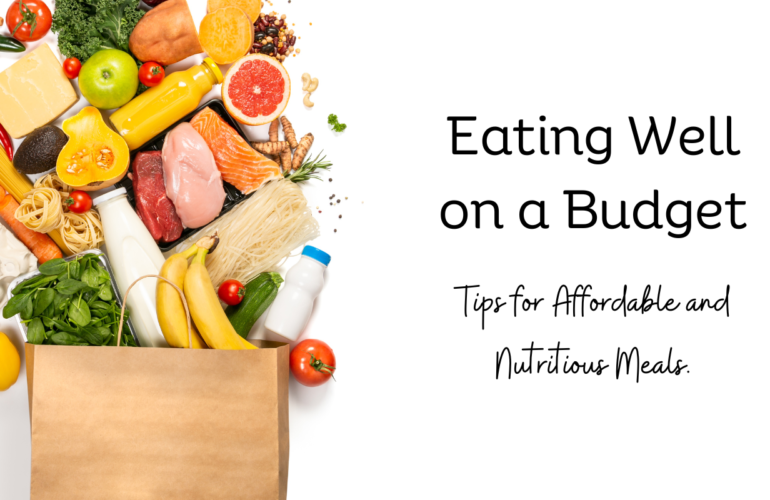In a world where fast food and convenience meals often seem like the easiest options, eating well on a budget can be a challenge. However, it’s essential to understand that a limited budget doesn’t have to mean sacrificing nutrition. With some planning, creativity, and a few key strategies, you can enjoy delicious, nourishing meals that won’t break the bank. In this article, we will explore practical tips for eating well on a budget while prioritizing your health and well-being.
Plan Your Meals
One of the most effective ways to save money and eat healthily is to plan your meals in advance. Create a weekly or monthly meal plan that includes breakfast, lunch, dinner, and snacks. Planning allows you to make a shopping list based on what you need, reducing the chances of buying unnecessary items or expensive impulse purchases. Be sure to include affordable staples like rice, beans, pasta, and oats, which can serve as the foundation for many budget-friendly meals.
Buy in Bulk
When possible, purchase non-perishable items in bulk. Items like rice, lentils, canned vegetables, and pasta are often less expensive when bought in larger quantities. Keep an eye out for sales and discounts at warehouse stores or online retailers, as they can offer substantial savings on staple foods.
Embrace Frozen and Canned Produce
While fresh fruits and vegetables are fantastic, they can be costly, especially if they’re not in season. Frozen and canned produce is a budget-friendly alternative that can be just as nutritious. These options have a longer shelf life, reducing food waste and saving you money in the long run. Look for products without added salt, sugar, or preservatives for the healthiest choices.
Cook at Home
Eating out frequently can quickly drain your budget. Cooking at home not only saves money but also allows you to control the ingredients in your meals. Try cooking in batches and freezing portions for later use. It’s a time-efficient way to have home-cooked meals, even on busy days.
Opt for Generic Brands
Generic or store-brand products are often just as high in quality as name-brand items but come at a lower price. Compare labels and ingredients to ensure you’re getting the best value for your money.
Limit Meat Consumption
Meat can be one of the more expensive items in your grocery cart. Consider reducing your meat consumption by incorporating more plant-based proteins like beans, lentils, tofu, and eggs into your diet. When you do buy meat, choose less expensive cuts and use them sparingly in recipes with plenty of vegetables and grains.
Minimize Food Waste
Reducing food waste is not only good for your budget but also for the environment. Plan your meals to use up ingredients before they spoil, and get creative with leftovers. You can transform last night’s dinner into a new, exciting meal with a little imagination.
Take Advantage of Sales and Coupons
Keep an eye on weekly sales flyers and coupons from your local grocery stores. Many stores offer discounts on staple items, and using coupons can lead to significant savings over time.
Eating well on a budget is not only achievable but also a smart and healthy choice. By planning your meals, buying in bulk, choosing affordable ingredients, and cooking at home, you can enjoy nutritious and delicious meals without straining your finances. Remember that small changes in your shopping and cooking habits can lead to big savings and better health in the long run. So, embrace these budget-friendly tips and start nourishing your body without breaking the bank.
